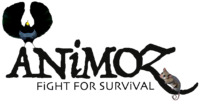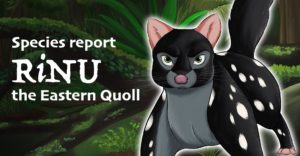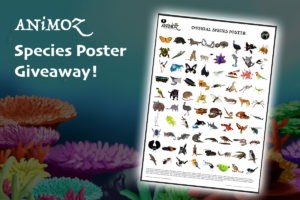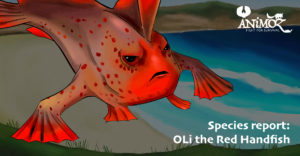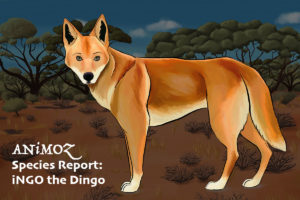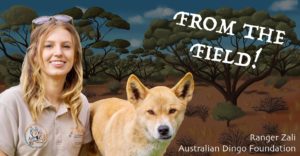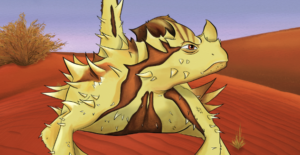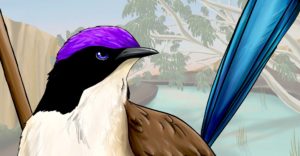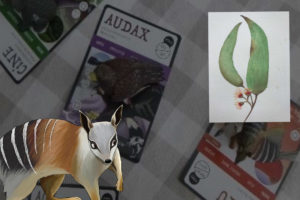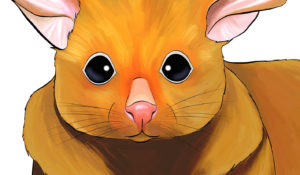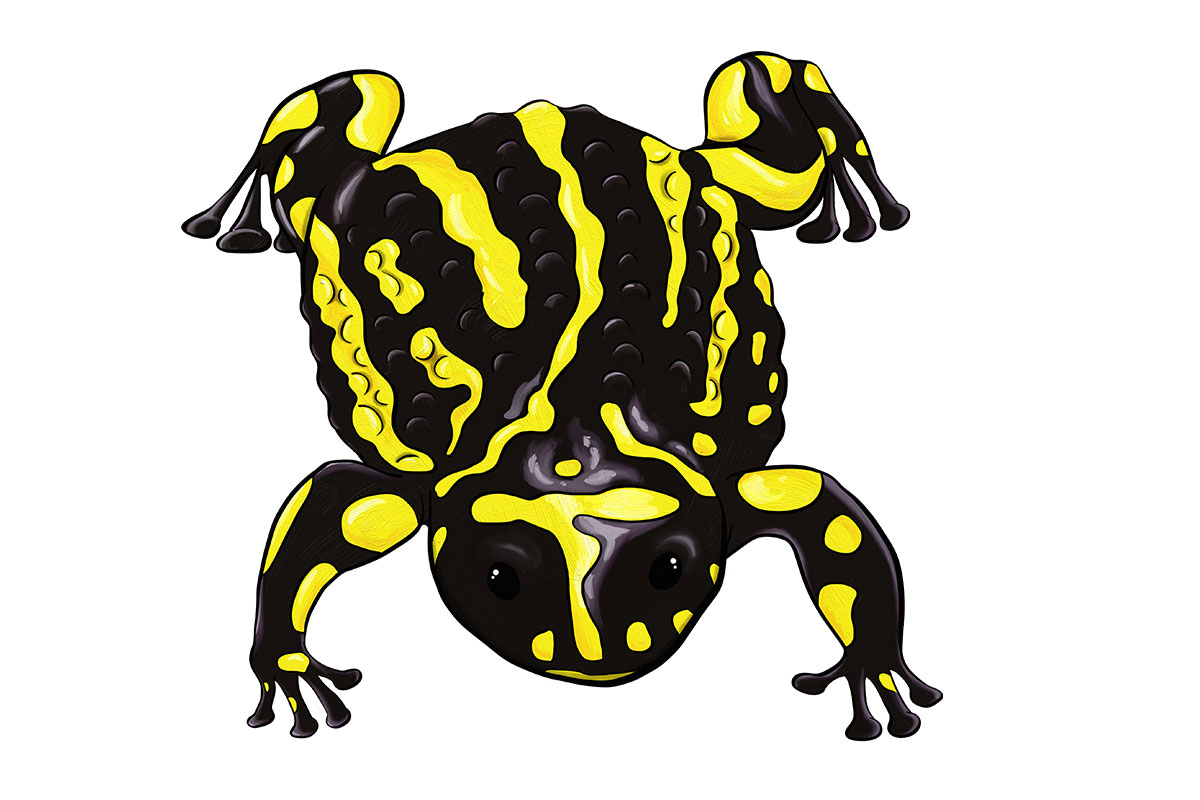
BOREE - Southern Corroboree Frog
“A trickle of water is all that smothers the birdsong in this crisp Mountain dawn, 1300m above sea level in a muddy bog. Other creatures are slowly waking and venturing out from their logs and burrows. Croaking starts to sound over the grasses, and BOREE joins in with his notable ‘SQUELCH’! He has adapted to a life void of fear, for although he can fall prey to FERA and some other Predators, his VENOM Superpower helps keep him safe. His real threat comes from something unseen; a disease striking at species like his. This is made worse as BOREE loses his home to human encroachment. He sounds his call, hoping a female BOREE will hear him. They are Critically Endangered, so every chance to grow the population is important…”
ANiMOZ #200
Code: BOREE
Common name: Southern corroboree frog
Taxonomy: Pseudophryne corroboree
Level: OMNI | Form: Flee | Status: Highly Rare
BiOME: Mountain | Forest | River
Overcomes: Flood
Superpowers:
VENOM
BOREE is the only frog to make her own toxins (rather than forming it via a food source), and she excretes this through her skin when threatened! Whilst the ‘VENOM’ Superpower isn’t directly named after this, as it is a poison more than a venom, it does mean that this special frog will beat any ‘venom’ species she comes up against in a Clash!
THREATPOSE
His Threatpose power lets others know that he’s poisonous, and not worth their time! This Superpower is also called aposematism, which is nature’s way of communicating danger through bright colours, and patterns like stripes. This powerful adaptation enables BOREE to warn off predators before they learn about his poison the hard way - which wouldn’t be good for him either!
Weaknesses:
DISEASE
Disease is a real threat to BOREE - particularly chytridiomycosis, which results from the widespread amphibian chytrid fungus (Batrachochytrium dendrobatidis). Sadly, this fungus has devastated populations of many species, including those of BOREE.
FERA
FERA is the common eastern froglet, who lives in the same area as BOREE. Unfortunately for BOREE, FERA is a reservoir host for chytrid fungus, meaning she doesn’t suffer from the disease but does carry the fungus, passing it on to BOREE! If BOREE comes up against FERA in a Clash, it is a certain, automatic loss...
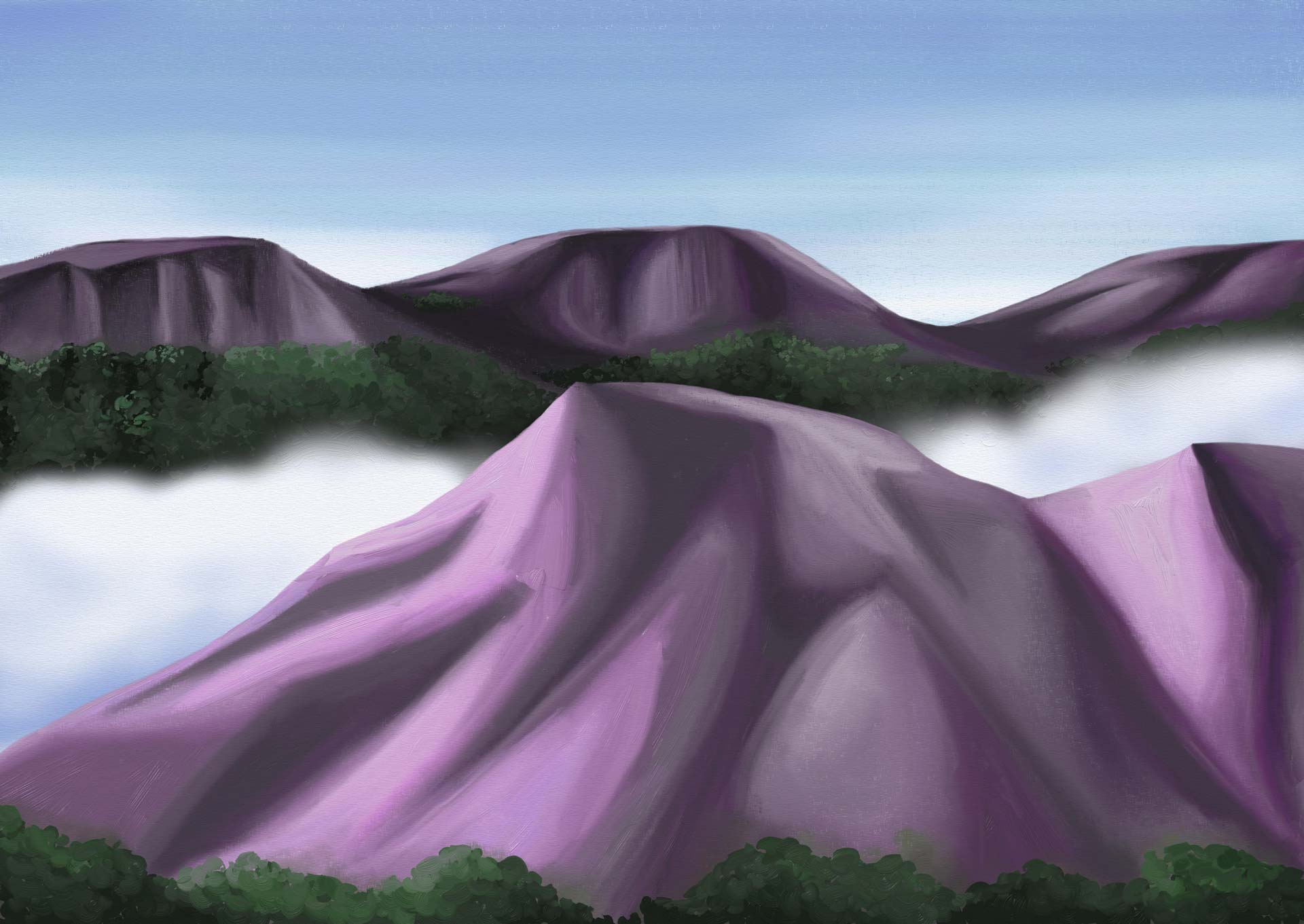

Booster Packs for Kids in Need
This December, you can help us bring a smile to kids who are facing challenging times. For every Booster Pack sold this month, we will donate a separate Booster Pack to the Backpacks 4 SA Kids organisation to gift as a present to a child in need. As we enter the festive season for 2022, …
Species Report: RiNU the Eastern Quoll
The Eastern Quoll (Dasyurus viverrinus) is RiNU! RiNU come in two colour morphs: dark and fawn. A litter of RiNU can include both colours! RiNU was once found across eastern Australia but is now restricted to Tasmania. RiNU are nocturnal, hunting alone at night. About the Eastern Quoll Though she be but little, she is …
Official Species Poster Giveaway!
Win 1 of 5 giant Species Posters featuring every ANiMOZ species! As an ANiMOZ Ranger, your job is to learn as much as you can about Australian wildlife, and work to protect our many endangered animals. So to help you fully appreciate all the different species that make up the World of ANiMOZ, we’re giving …
Species Report: OLi the Red Handfish
The Red Handfish (Thymichthys politus) is OLi – the world’s rarest fish! The Red Handfish is found in only two small patches of reef in south-eastern Tasmania There are only around 100 adult OLi left in the wild! They are so rare that scientists will not disclose where their second population is to prevent poaching …
Species Report: iNGO the Dingo
The Australian Dingo (Canis lupus dingo) is iNGO – an Apex Predator from the ANiMOZ Scrub BiOME! iNGO arrived in Australia on boats with Indonesian seafarers sometime between 8000-4000 years ago and are most closely related to the New Guinea Singing Dog They live in family groups and are an important part of the ecosystems …
From the Field: Ranger Zali talks about iNGO!
From the Field: Headquarters speaks to real-life Rangers working to save ANiMOZ species like iNGO the Dingo! In our From the Field series, we talk to people working across Australia to save the many animals you know from the World of ANiMOZ. Today, we hear from Ranger Zali from the Australian Dingo Foundation! Ranger …
Species Report: HORRiD the Thorny Dragon
HORRiD is the thorny dragon (Moloch horridus)! Species report on the thorny devil A real-life dragon with fantastic superpowers lives in the Australian desert! Horridus – their scientific name – means “bristly”, named for their spikey appearance The thorny dragon only eats ants, and can only feed when the temperature is above 24 degrees! …
Species Report: CORO the Purple-Crowned Fairywren
CORO is the purple-crowned fairywren (Malurus coronatus)! Species report on the purple-crowned fairywren Coronatus – CORO’s scientific name – literally translates to “crowned” An adult wren only weighs 9-13 grams There are two subspecies: the purple-crowned fairywren and McGilivray’s fairywren They live across the northern portion of Australia, from the Kimberly to the Gulf …
Species Report: CORO the Purple-Crowned Fairywren Read More »
Ranger Community: “The children can learn more about why these animals are under threat…”
In our Ranger Community series, we hear from ANiMOZ Rangers out in the field about how they use the game to learn about, teach about and support wildlife. The Rangers from Newland Park Kindergarten shared their recent newsletter article with Headquarters about how they use ANiMOZ! Read it in full here: Amelia and her …
Species Report: FULi the Golden brushtail possum
FULi is the Golden brushtail possum (Trichosurus vulpecula fuliginosus)! Species report on the Golden brushtail possum FULi is the same species as the Common brushtail possum, but with a genetic mutation that makes their fur a golden colour Their colour makes them conspicuous to predators, so they are rare and found primarily in Tasmania …
Species Report: FULi the Golden brushtail possum Read More »
